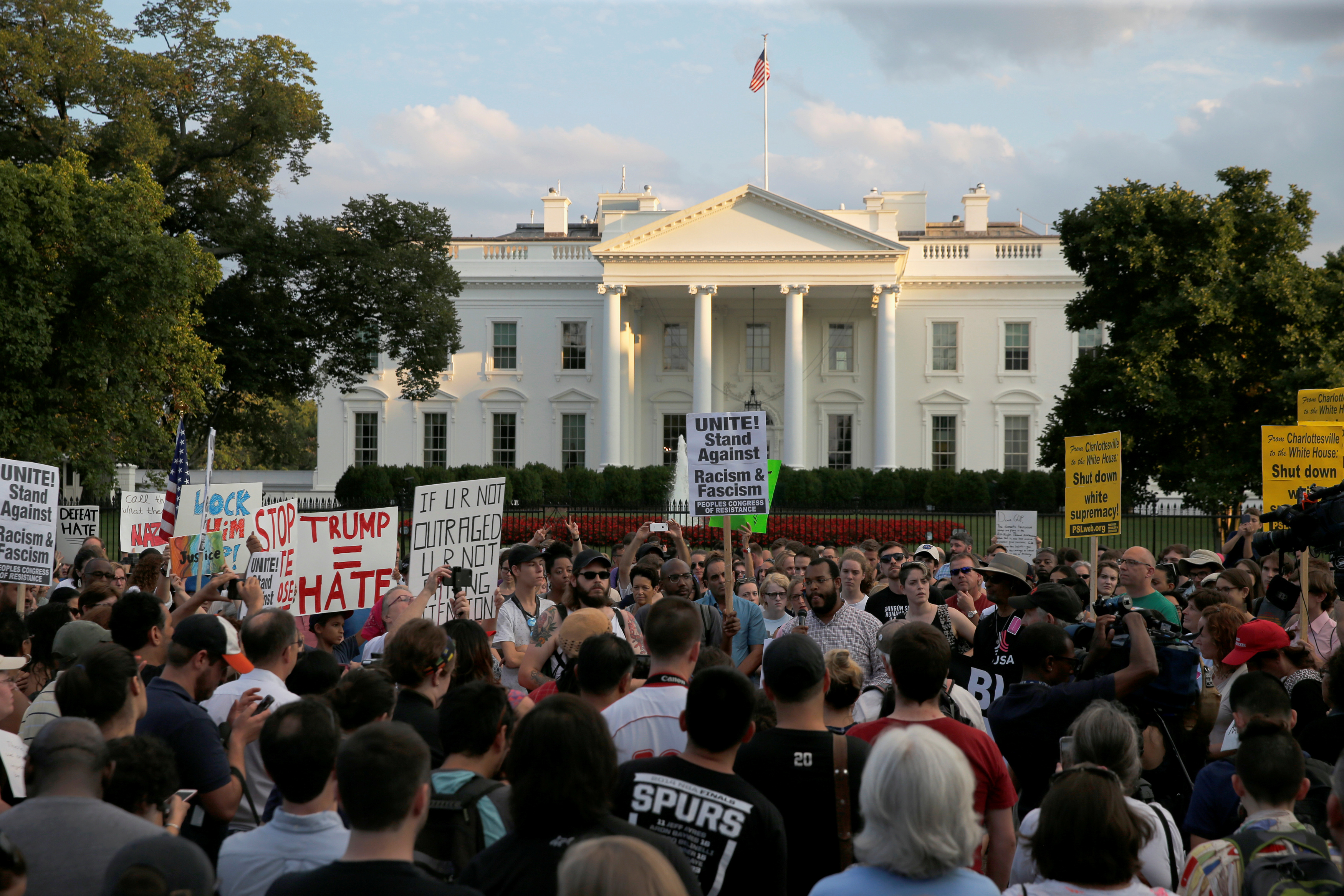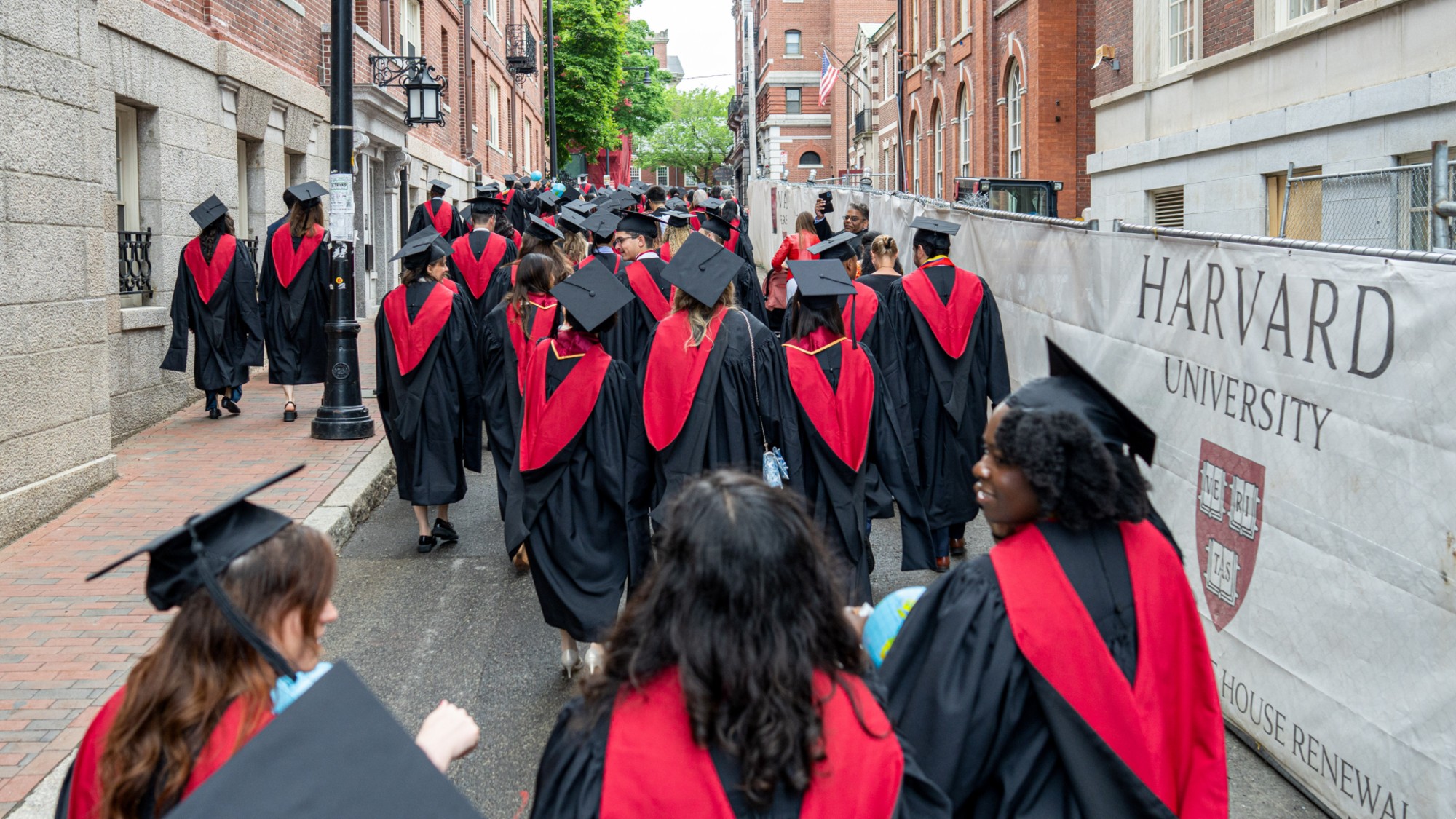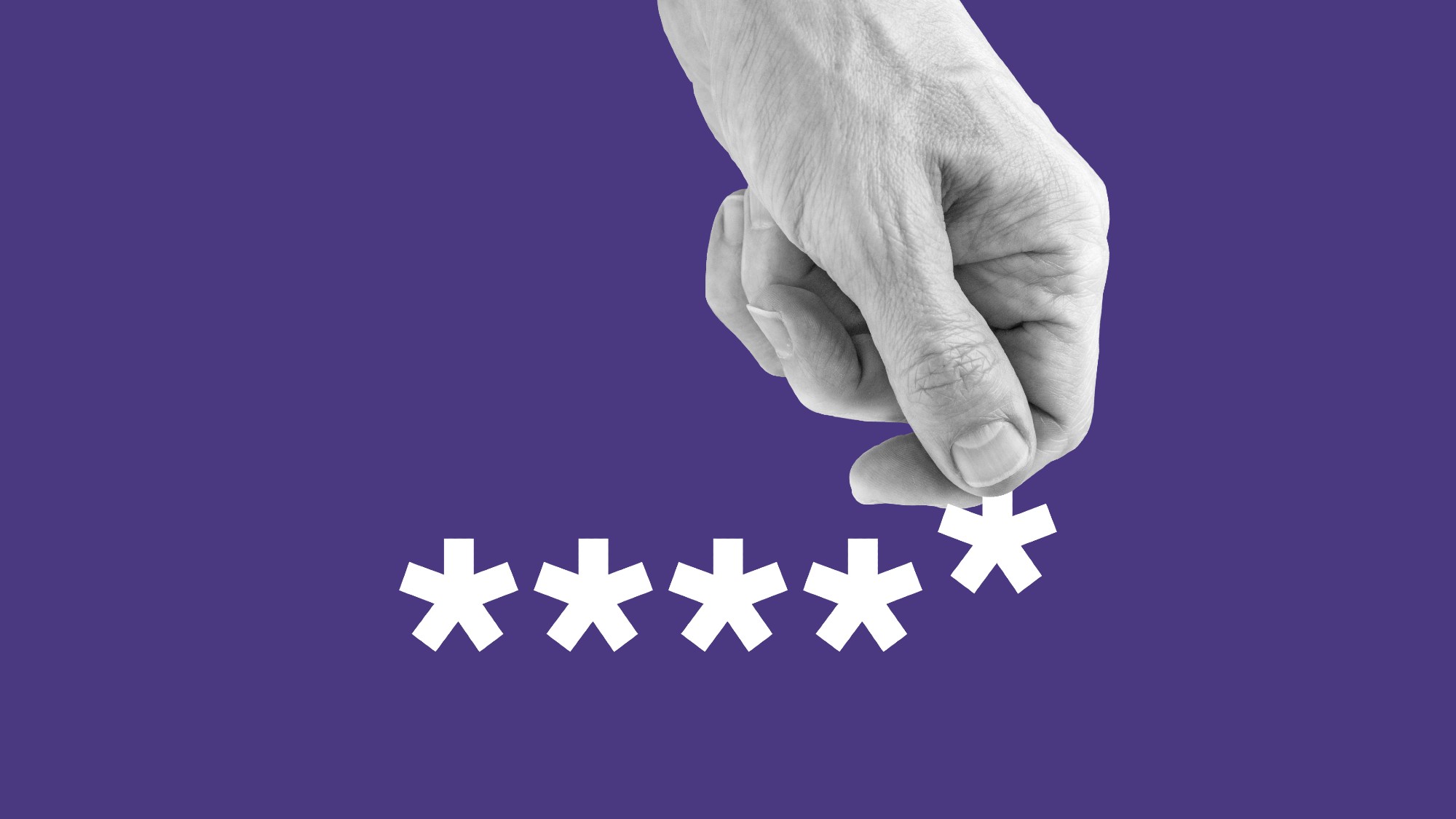Don't praise the GOP for calling out Trump's appalling Charlottesville comments
Actions speak louder than words


Depressingly but predictably, a white supremacist "Unite the Right" rally in Charlottesville, Virginia, turned deadly on Saturday. James Alex Fields Jr. is accused of driving a car into a crowd of counter-protesters — apparently intentionally — killing a 32-year-old paralegal and activist named Heather Heyer, and injuring more than a dozen others. Unfortunately, this kind of bubbling bigotry sweeping the country will only get worse before it gets better. While President Trump's weak response to the weekend's events represents its own genuinely unique dangers, we also shouldn't forget about some of the more genteel white supremacy that helped put him in the White House in the first place.
Trump's brief and poorly delivered speech following the rally was the latest disaster in a presidency that has been a perpetual blimp crash from the day Trump was inaugurated. Coming off as a cross between a Jim Crow-era Southern governor and a centrist pundit who assumes that both parties are equally responsible for any policy failure, Trump initially refused to call out the white supremacists specifically, and instead gave vague criticisms of the "egregious display of hatred, bigotry, and violence. On many sides. On many sides."
Holding everybody and therefore nobody responsible, Trump effectively apologized for the Neo-Nazis who fomented hatred and deadly violence in Charlottesville. This is a president of the United States who is willing to call out specific individuals, often over the most trivial of grudges, yet when a very real enemy of the nation's foundation rears its ugly head, he offers little more than a shrug.
Subscribe to The Week
Escape your echo chamber. Get the facts behind the news, plus analysis from multiple perspectives.

Sign up for The Week's Free Newsletters
From our morning news briefing to a weekly Good News Newsletter, get the best of The Week delivered directly to your inbox.
From our morning news briefing to a weekly Good News Newsletter, get the best of The Week delivered directly to your inbox.
This was not an oversight; he refused to call out the white supremacist groups and individuals by name for political and ideological reasons. Indeed, as Simon Maloy put it for The Week, "there's no mystery as to why Trump granted violent white supremacists the protection of false equivalence: Trump's base is angry white voters, and he's unwilling to antagonize a group of political supporters."
The mobilization of white supremacy is not incidental to Trump's rise, but central to it. Remember, he became a major figure in the Republican Party by aggressively promoting the racist falsehood that Barack Obama was not born in the United States, and continued to engage in egregious race-baiting throughout the 2016 campaign. There's a reason former Ku Klux Klan grand wizard David Duke declared after the Charlottesville rally that "[t]hat's why we voted for Donald Trump, because he said he's going to take our country back." The "our" in that sentence is represented by the white nationalist and anti-Semitic groups that staged the hate rally this weekend. Trump's lackluster response to such a rally was just another reminder of the very real particular dangers his naked appeals to white supremacy and xenophobia pose.
Trump's pathetic speech was a bridge too far for some of the Republicans who made a devil's bargain with Trump and have been ignoring his overt racism and corruption in the hope that he could serve as a vehicle to advance their unpopular policy agenda. Multiple prominent Republican senators, including Orrin Hatch (Utah), Cory Gardner (Colo.), Marco Rubio (Fla.), and Ted Cruz (Texas) did what Trump should have done but didn't: They specifically called out the white supremacist hate groups and condemned their destructive ideology.
This is laudable as far as it goes, but it doesn't let them, or the Republican Party, off the hook. The GOP has nurtured and harbored Trump's explicitly racist appeals. And still quieter, less obvious forms of racism run through the party. After all, it was not Trump who wrote the 2013 opinion gutting the Voting Rights Act, therefore paving the way for various voter identification laws and dubious redistricting. That distinction goes to Chief Justice John Roberts, a man who has long been opposed to expanding voting rights.
And Roberts has a lot of company. As Eric Levitz of New York puts it, "[t]here are plenty of Republican lawmakers who campaign with utmost civility, and then push legislation that objectively advances racial inequity." Congressional Republicans have not acted to repair the Voting Rights Act or to guarantee access to the ballot. Instead, Republicans in state after state have enacted vote-suppression measures targeted at minority voters. As the Republican Party moves increasingly further to the right of the typical voter, the measures have only become more desperate. Trump's fondness for voter suppression doesn't make him an outlier — it makes him a typical Republican in 2017, and that is perhaps the scariest thing of all.
Calling out Trump's white supremacy is necessary, and it's good that some Republicans are finally doing it. But actions speak louder than words, and until Republicans start showing the American people, particularly those who aren't white, that they care about their rights and well-being, too, the GOP's condemnations of white supremacy will ring hollow.
Sign up for Today's Best Articles in your inbox
A free daily email with the biggest news stories of the day – and the best features from TheWeek.com
Scott Lemieux is a professor of political science at the College of Saint Rose in Albany, N.Y., with a focus on the Supreme Court and constitutional law. He is a frequent contributor to the American Prospect and blogs for Lawyers, Guns and Money.
-
 Colleges are canceling affinity graduations amid DEI attacks but students are pressing on
Colleges are canceling affinity graduations amid DEI attacks but students are pressing onIn the Spotlight The commencement at Harvard University was in the news, but other colleges are also taking action
-
 When did computer passwords become a thing?
When did computer passwords become a thing?The Explainer People have been racking their brains for good codes for longer than you might think
-
 What to know before 'buying the dip'
What to know before 'buying the dip'the explainer Purchasing a stock once it has fallen in value can pay off — or cost you big
-
 The JFK files: the truth at last?
The JFK files: the truth at last?In The Spotlight More than 64,000 previously classified documents relating the 1963 assassination of John F. Kennedy have been released by the Trump administration
-
 'Seriously, not literally': how should the world take Donald Trump?
'Seriously, not literally': how should the world take Donald Trump?Today's big question White House rhetoric and reality look likely to become increasingly blurred
-
 Will Trump's 'madman' strategy pay off?
Will Trump's 'madman' strategy pay off?Today's Big Question Incoming US president likes to seem unpredictable but, this time round, world leaders could be wise to his playbook
-
 Democrats vs. Republicans: who are the billionaires backing?
Democrats vs. Republicans: who are the billionaires backing?The Explainer Younger tech titans join 'boys' club throwing money and support' behind President Trump, while older plutocrats quietly rebuke new administration
-
 US election: where things stand with one week to go
US election: where things stand with one week to goThe Explainer Harris' lead in the polls has been narrowing in Trump's favour, but her campaign remains 'cautiously optimistic'
-
 Is Trump okay?
Is Trump okay?Today's Big Question Former president's mental fitness and alleged cognitive decline firmly back in the spotlight after 'bizarre' town hall event
-
 The life and times of Kamala Harris
The life and times of Kamala HarrisThe Explainer The vice-president is narrowly leading the race to become the next US president. How did she get to where she is now?
-
 Will 'weirdly civil' VP debate move dial in US election?
Will 'weirdly civil' VP debate move dial in US election?Today's Big Question 'Diametrically opposed' candidates showed 'a lot of commonality' on some issues, but offered competing visions for America's future and democracy